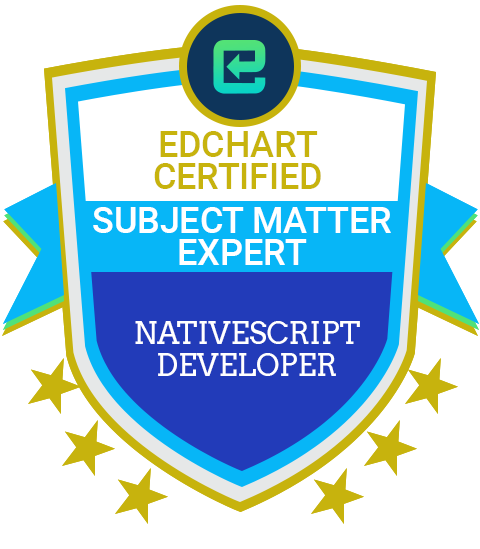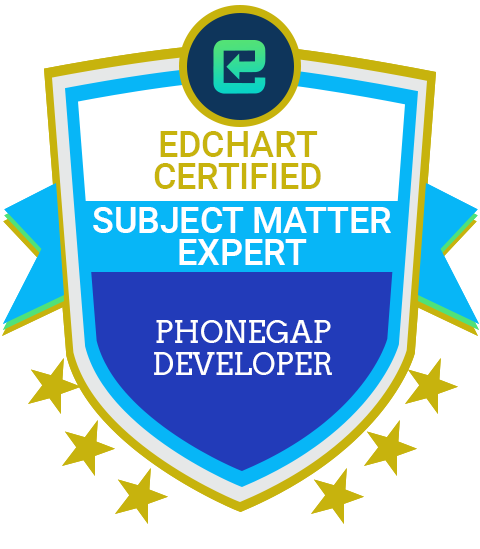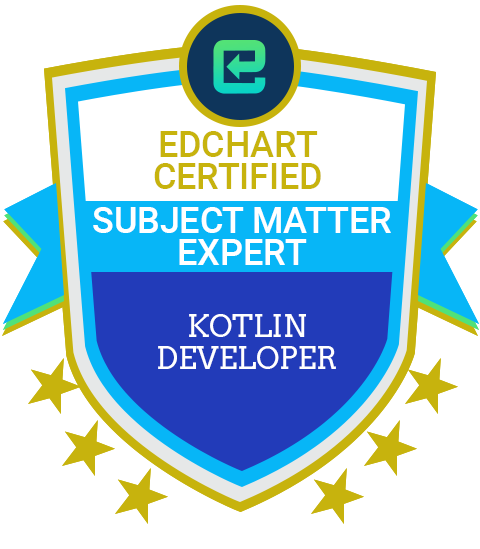
Edchart Certified
Jquery Mobile Framework SME
JQuery Mobile is a touch-optimized web framework built on the foundation of jQuery, offering developers a streamlined approach to crafting mobile web applications that deliver seamless experiences across a multitude of devices. With its extensive suite of UI components, touch-friendly gestures, and AJAX-powered navigation, jQuery Mobile empowers developers to create responsive and interactive interfaces with ease. By adhering to progressive enhancement principles, jQuery Mobile ensures broad compatibility while still providing rich functionality for modern browsers and devices. Whether you're building a simple prototype or a sophisticated enterprise application, jQuery Mobile provides the tools and flexibility needed to succeed in today's mobile-first world, making it a go-to choice for developers seeking to deliver exceptional mobile experiences.
jquery mobile certification| jquery mobile framework| jquery mobile developer| Mobile Web Development Certification| jQuery Mobile Framework Exam| jQuery Mobile Developer Certification| Mobile UI/UX Certification| jquery mobile cdn| cordova jquery mobile| jquery mobile 1.4 5 min js| jquery mobile app| jquery mobile app development| jquery mobile app examples| jquery mobile bootstrap| jquery mobile can be used to develop hybrid apps| jquery mobile cdn google| jquery mobile examples| jquery mobile examples with source code| jquery mobile phonegap| jquery mobile ui| jquery mobile website| mobile jquery| jquery mobile| html5 barcode scanner jquery mobile| jquery mobile cdn| learning jquery| cordova jquery mobile| html5 qr code scanner jquery mobile| jqgrid mobile| jquery mobile 1.4 5 min js| jquery mobile app| jquery mobile app development| jquery mobile app examples| jquery mobile barcode scanner example| jquery mobile bootstrap| jquery mobile can be used to develop hybrid apps| jquery mobile cdn google| jquery mobile css| jquery mobile example| jquery mobile examples with source code| jquery mobile framework| jquery mobile phonegap| jquery mobile ui| jquery mobile w3schools| jquery mobile website| |
| India: |
|
|---|---|
|
Other Countries: |
|
JQuery Mobile Framework Certification: Get Certified Instantly Without Classes
In today’s competitive digital landscape, web developers and mobile application designers are constantly seeking ways to validate their expertise. The JQuery Mobile Framework Certification is an excellent opportunity for professionals to gain global recognition without the need for classes or learning modules. This certification is widely accepted by companies and is also validated by Credly, providing international digital credentials. By passing a single test, professionals can prove their proficiency in JQuery Mobile development and stand out in the job market. JQuery Mobile Framework Certification
Description of JQuery Mobile Framework Certification
The JQuery Mobile Framework Certification is designed to assess and certify individuals with expertise in using JQuery Mobile to develop responsive, cross-platform web applications. JQuery Mobile is a lightweight UI framework that allows developers to create touch-optimized web applications with a single codebase that functions seamlessly across different devices. This certification validates the candidate’s ability to implement the framework effectively, making them a desirable hire in industries requiring mobile-friendly web solutions. JQuery Mobile Framework Certification
Scope of JQuery Mobile Framework Certification
The scope of this certification extends to multiple industries, including web development, mobile application design, and UI/UX development. Companies looking for professionals with experience in creating seamless, user-friendly mobile experiences highly value certified individuals. Moreover, as businesses shift towards mobile-first approaches, the demand for JQuery Mobile-certified developers is expected to rise exponentially. JQuery Mobile Framework Certification
Advantages of Earning the Certification
-
Instant Recognition: Since there is no requirement for courses or learning modules, candidates can get certified immediately after passing the test.
-
Global Acceptance: The certification is recognized by leading organizations worldwide and is validated by Credly, adding international credibility. JQuery Mobile Framework Certification
-
Career Enhancement: Certified professionals can apply for roles such as mobile web developers, front-end developers, and UI/UX designers with confidence.
-
Competitive Edge: Demonstrating expertise in JQuery Mobile increases job prospects and salary potential.
-
Convenience: No need for lengthy courses or classroom training—just pass the test and get certified. JQuery Mobile Framework Certification
Features of the Certification
-
Single-Test Qualification: Candidates only need to pass one exam to earn their certification.
-
No Learning Modules Required: Unlike traditional certifications, this one does not require attending classes.
-
Recognized by Employers: Companies acknowledge and appreciate certified professionals.
-
Validated by Credly: International recognition through digital credentials. JQuery Mobile Framework Certification
-
Time-Saving: Ideal for professionals looking to quickly validate their skills without investing months in training.
Benefits of Having This Certification
-
Higher Employability: Certified individuals have an edge in job applications.
-
Increased Credibility: Proving expertise in JQuery Mobile boosts professional credibility.
-
Industry Recognition: Employers trust the certification as proof of real-world skills.
-
Professional Growth: Opens doors to better job roles and higher salaries. JQuery Mobile Framework Certification
How the Certification Stands Out from Others
Unlike many certifications that require extensive training and coursework, the JQuery Mobile Framework Certification offers a fast and effective way to validate skills. Professionals can complete the certification process in a matter of hours, making it one of the most convenient and valuable credentials in the industry. Additionally, its recognition by Credly further enhances its credibility on a global scale. JQuery Mobile Framework Certification By earning this certification, professionals can fast-track their careers and showcase their expertise in JQuery Mobile development. JQuery Mobile Framework Certification
| Exam Timing: | 60 (Mins) |
|---|---|
| Pass Per | 60% |
| Level | Expert |
| Roles | Hybrid Mobile App Developer |
| No. of Questions | 30 |
-
Nikos Tzounakos (Greece)Attended on - 2024-10-29 11:23:16
International Recognized Certificates
Get Your Verifiable and Shareable International Digital Certificates
Industry-oriented Skill Sets
Industry experts suggested knowledge-centric Certificates
Edchart Global User Profile
Edchart Global User Profile for each candidate to share and have.




